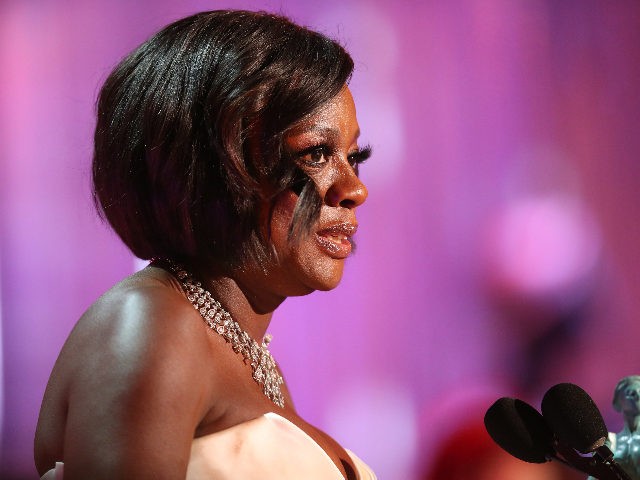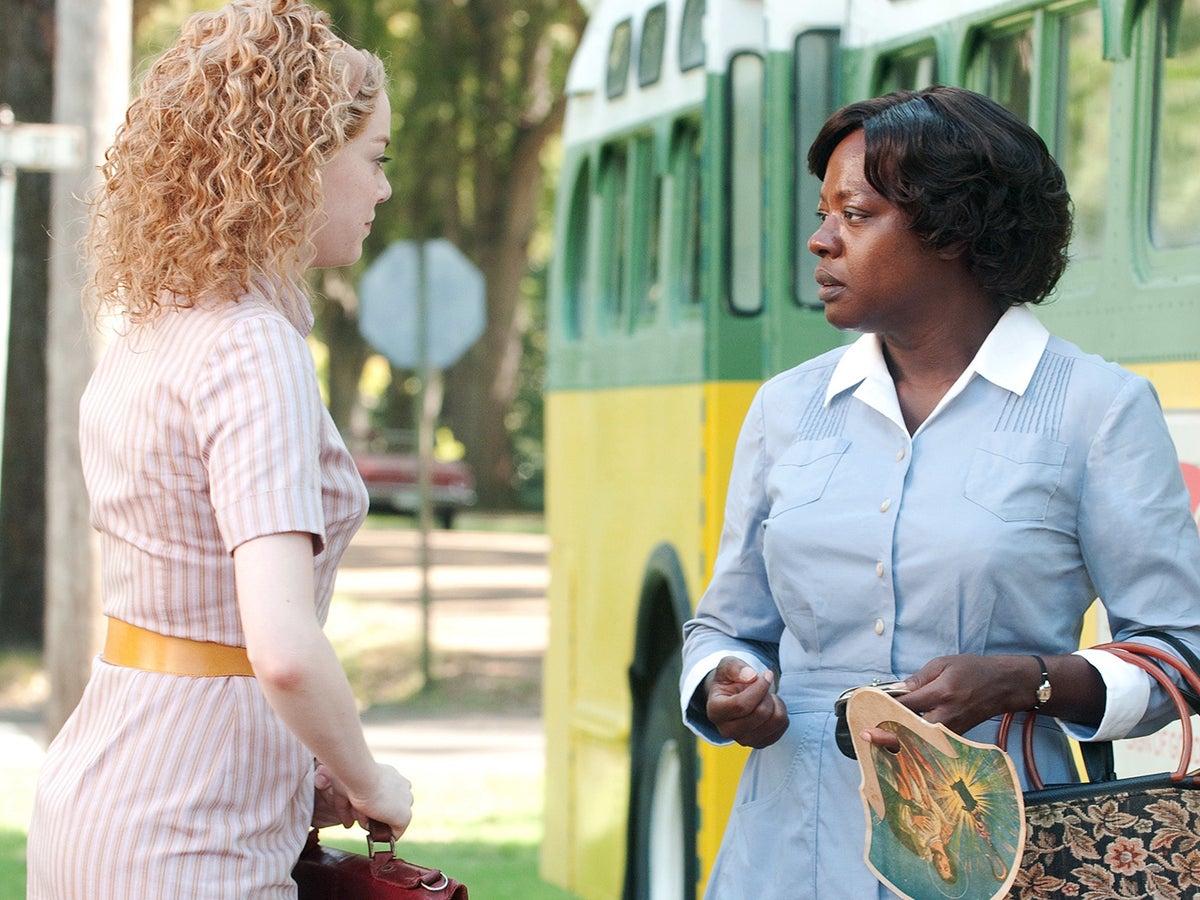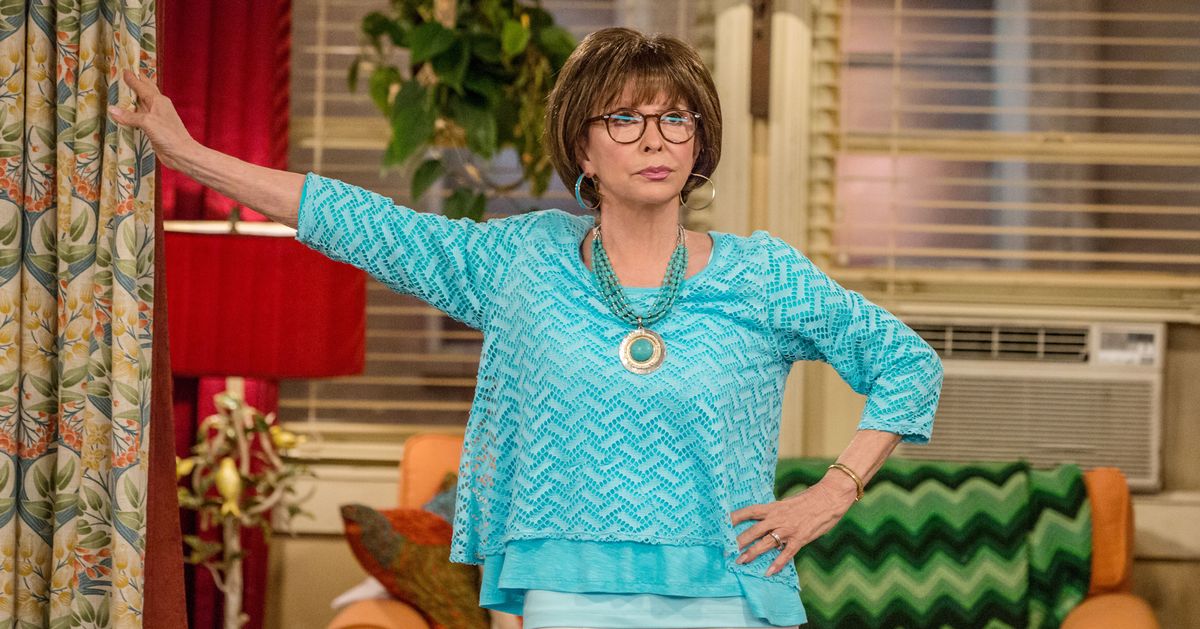Academy Award-winning actress Viola Davis says “you either have to be a black female version of a white ideal, or you have to be white” in order to succeed in Hollywood — an industry that claims to be liberal and inclusive. Davis is the latest in an ever growing list of Hollywood women who have accused the entertainment industry of racism and sexism.
Davis told the Guardian that her chances of success were slim as a black woman entering the industry in the 1990s, and that she quickly realized that in order to succeed “you either have to be a black female version of a white ideal, or you have to be white.”
The actress — who was 43 when she was first nominated for an Oscar — added that she had struggled with her TV and film credits.
Davis noted that many of the characters she fit the description for were drug-addicted mothers, and that the “pretty” or sexualized roles were never given to her, even when the producers were black.
The How to Get Away with Murder star added that she played a “huge slate” of “best friends to white women,” as well as a large number of authoritarian cops and FBI agents.
Davis also shared her frustration while attending the prestigious Juilliard School, saying that leader in performing arts education had a desire to create the “perfect white actor.”
“There is no set rule to how a character should be played,” Davis said. “That was my issue with Juilliard. Whatever character I play, I’m not gonna play with the same palette as my white counterparts, because I’m different.”
“My voice is different. Who I am is different. It was like, ‘Your voice is too deep, you’re too hard. So you have to be light, but you have to be light like a 90lb white girl, you can’t be your light,'” the actress added.
“I think that sometimes, everything that you are can crumble under the weight of Eurocentric and white-centric notions,” Davis said. “There’s nowhere for someone like me to go — nowhere. I got a wide nose, big lips, dark skin — I mean, where do I go? Look at me — I might as well walk through the doors of Juilliard and walk my ass out!”
Davis is the latest in an ever growing list of Hollywood members to accuse the industry of racism.
Last summer, actress Rita Moreno said that racism in Hollywood is “still the same damn problem” it was when she was starting out seven decades ago.
Last April, filmmaker Shaka King noted that Hollywood distributors have an “incredibly hostile” attitude toward black-led films, assuming they will lose money.
Racism is not the only accusation Hollywood faces from members of its own industry.
Earlier this year, actress Geena Davis blasted Hollywood sexism and ageism, stating that after she had won an Oscar, directors “wanted to make sure I knew my place.” Actress Emma Thompson has also called out Hollywood’s casting sexism, stating that once a woman passes the age of 50, she becomes “invisible.”
Hollywood — which claims to be a haven for liberalism and inclusivity — has also been slammed by Titanic and Avatar star Kate Winslet, who said that she knows “at least four” actors who are “hiding their sexuality” due to “homophobia” that exists in the entertainment industry.
While Davis and her fellow members of Hollywood blast the industry filled with and dominated by Democrats, the actress herself doesn’t appear to be wavering in her own political beliefs.
Earlier this month, Davis joined the cohort of celebrities who rejoiced as the Senate voted 53-47 to confirm Judge Ketanji Brown Jackson to the U.S. Supreme Court, marking President Joe Biden’s first appointment to the country’s highest court.
In January, the actress shamelessly used Martin Luther King Day to push the Democrats’ “voting rights” bills that are designed to seize election oversight power from states and roll back measures including voter identification requirements.
You can follow Alana Mastrangelo on Facebook and Twitter at @ARmastrangelo, and on Instagram.



COMMENTS
Please let us know if you're having issues with commenting.